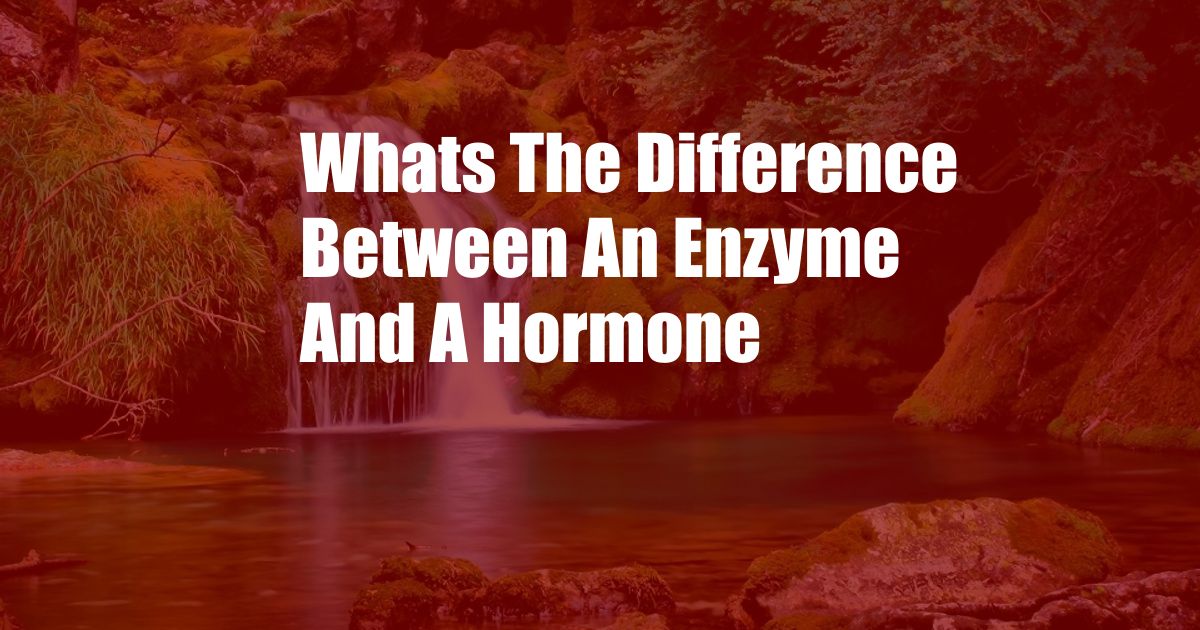
Enzymes vs. Hormones: Unveiling the Functional Divide
In the intricate tapestry of biological processes, enzymes and hormones play pivotal roles. While both are essential biological molecules, their functions, structures, and modes of action are vastly different.
Enzymes, often referred to as the “workhorses of the cell,” are protein molecules that catalyze biochemical reactions. They facilitate chemical transformations without undergoing any permanent changes themselves. Hormones, on the other hand, are chemical messengers that regulate a wide range of biological processes.
Enzyme Function and Mechanism
Enzymes orchestrate specific biochemical reactions by lowering the activation energy required for the reaction to occur. They do not alter the equilibrium of the reaction but rather speed up the process. Enzymes achieve this catalysis through active sites, which are specific regions of the enzyme that bind to the reactants.
The binding of reactants to the active site induces conformational changes in the enzyme, bringing the reactants into optimal proximity for the reaction to take place. Enzymes exhibit high specificity, meaning they typically catalyze only one or a few specific reactions.
Hormone Function and Mechanism
Hormones are chemical messengers that regulate various physiological processes. They are produced in endocrine glands and transported via the bloodstream to target cells throughout the body. Hormones bind to specific receptors on target cells, triggering a cascade of intracellular events.
The effects of hormones can be diverse, ranging from regulating metabolism to controlling growth and development. Hormones coordinate responses to external stimuli, maintain homeostasis, and mediate communication between different organs and tissues.
Comparing Characteristics
To further contrast enzymes and hormones, the following table summarizes their key characteristics:
| Characteristic | Enzyme | Hormone |
|---|---|---|
| Function | Catalyzes biochemical reactions | Regulates physiological processes |
| Structure | Protein molecules | Diverse chemical structures (steroids, peptides, etc.) |
| Synthesis | Produced in ribosomes | Produced in endocrine glands |
| Site of Action | Within cells | Target specific cells with receptors |
| Specificity | High specificity for specific reactions | Relatively low specificity for multiple targets |
Applications and Implications
Enzymes and hormones have wide-ranging applications in various scientific fields and industries:
- Enzymes: Used in food processing, medicine, biotechnology, and research.
- Hormones: Used in hormone replacement therapy, endocrinology, and research.
Conclusion
Enzymes and hormones are two distinct classes of biological molecules that play essential roles in cellular and whole-body functions. Enzymes facilitate chemical reactions, while hormones act as messengers to regulate various physiological processes. Understanding the differences between enzymes and hormones is crucial for comprehending the intricate symphony of life.
Are you interested in delving deeper into the world of enzymes and hormones? Let us know your questions, and we’ll be happy to explore them further.